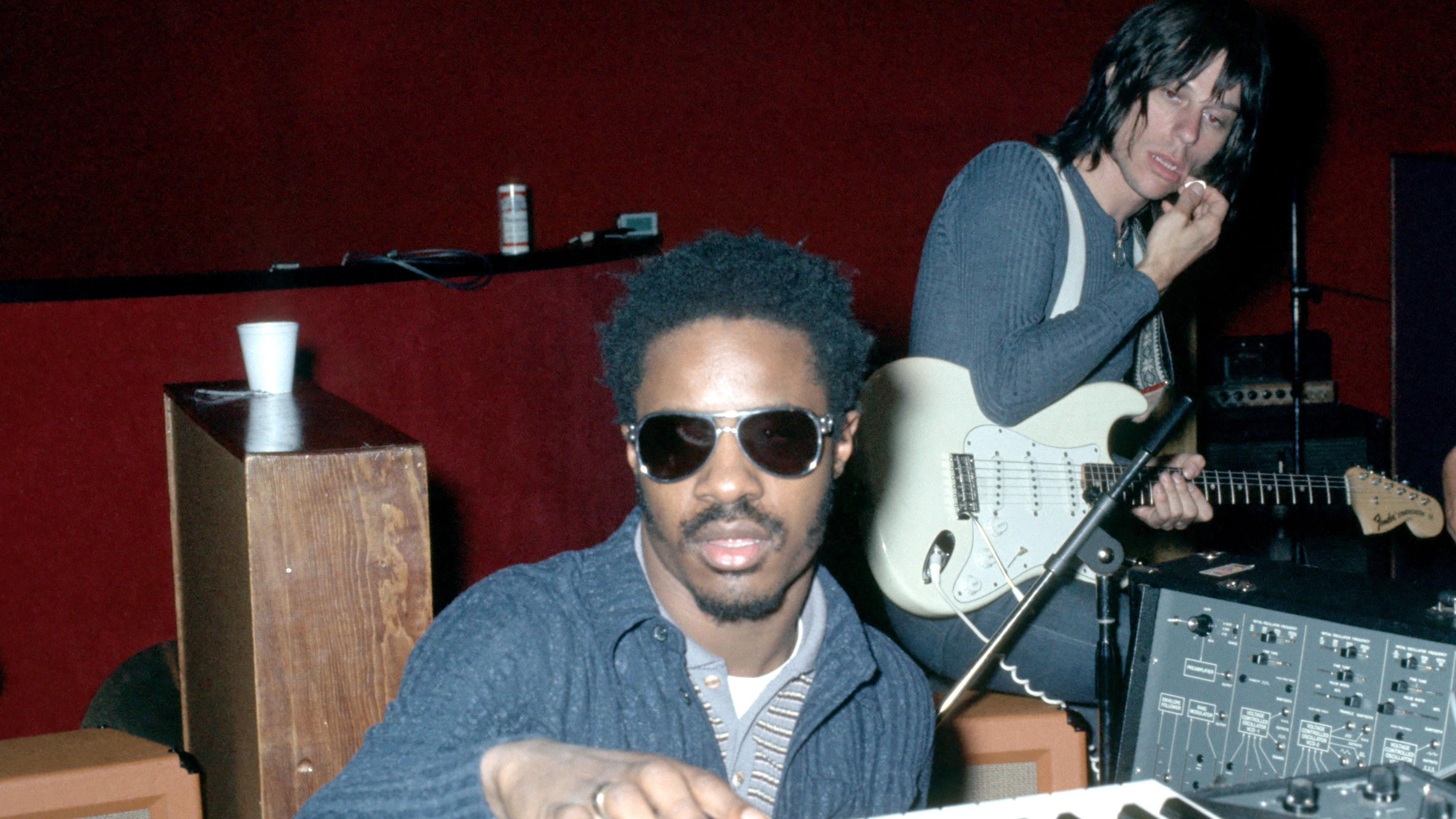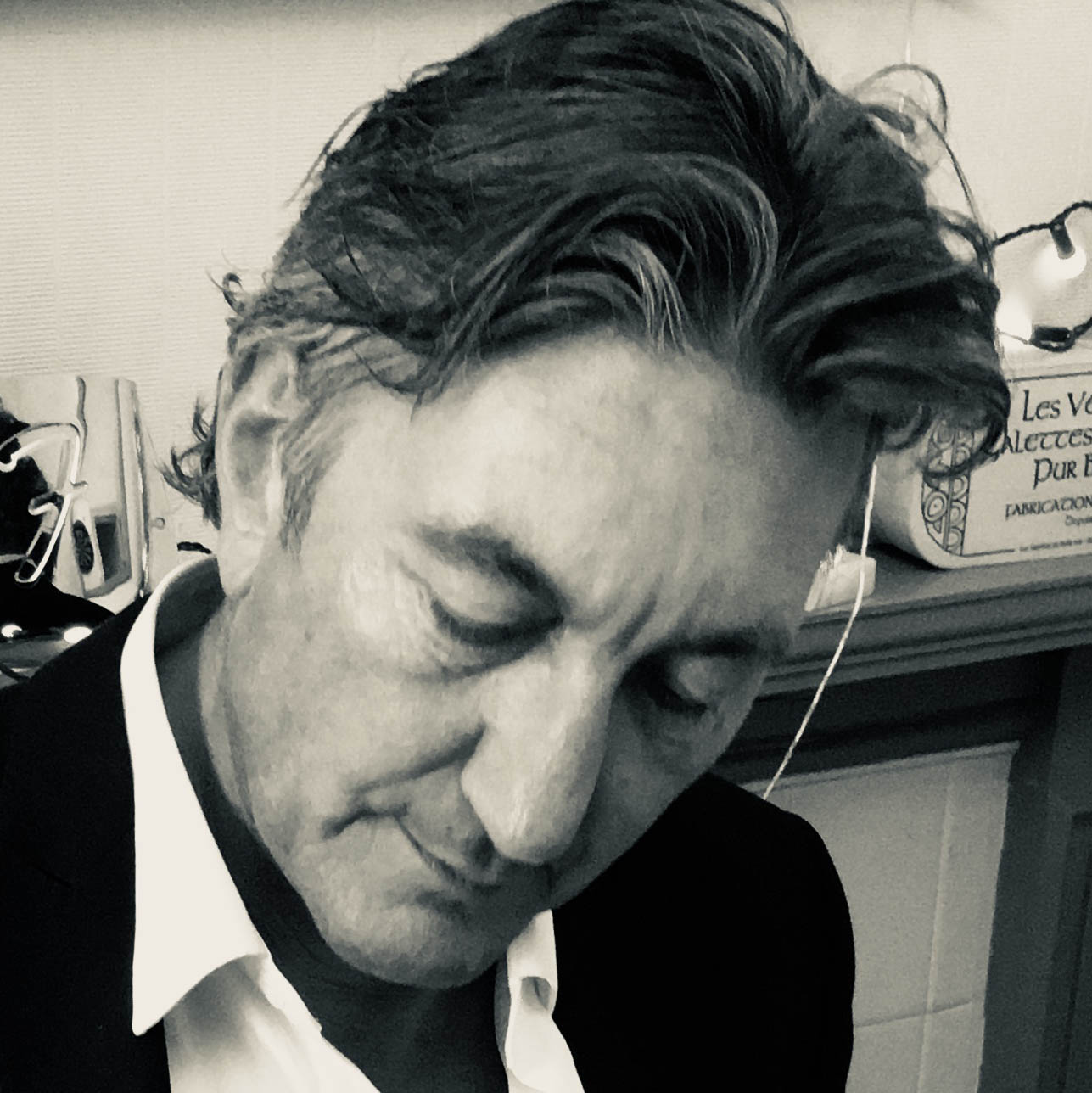“I thought, ‘He’s given me the riff of the century!’”: The classic song that Stevie Wonder wrote for Jeff Beck — but ended up saving for himself
The clavinet was a fresh and distinctive sound — and its most iconic recorded moment was on Superstition

Punch the words ‘iconic keyboard intros’ into a Google search and a whole raft of songs will splurge out in the search results, most of them big rock or pop classics — Seven Seas Of Rhye and Bohemian Rhapsody by Queen, A Whiter Shade Of Pale by Procul Harum, Jump by Van Halen, The Final Countdown by Europe, Bloody Well Right by Supertramp, Lady Madonna by The Beatles, Take On Me by A-ha, Baba O-Riley by The Who…
The list goes on and on.
But there is one song that is noticeably absent from these results, possibly because it is not played on a Steinway grand, a Hammond B3 organ or that staple of mid-80s synthdom, the Yamaha DX7.
This song is played on a Hohner Clavinet, an instrument produced from 1962 to 1984 and originally intended for home use and the gentle strains of late Medieval, Baroque and classical music.
But by the early ’70s the clavinet’s fat, gritty, staccato tones were finding favour as a defining instrument in funk and soul.
The clavinet was a fresh and distinctive sound, and its most iconic recorded moment was on Superstition, a song written and recorded by Stevie Wonder.
Superstition was released as a single in October 1972 and shot to No.1 in the Billboard Hot 100.
Want all the hottest music and gear news, reviews, deals, features and more, direct to your inbox? Sign up here.
On Superstition, Stevie Wonder laid down one of the meanest, groove-laden funk riffs ever committed to tape.
It heralded in a song that would become regarded as one of his most innovative works.
By the dawn of the 1970s, the singer, musician, songwriter and producer born Stevland Hardaway Morris was taking control of his career.
A decade earlier, as a prodigiously talented 11-year-old, he had been signed by Berry Gordy to the new Tamla Motown label in 1961 and given the stage name ‘Little Stevie Wonder’.
Because of Wonder’s age, Gordy drew up a rolling five-year contract, in which royalties would be held over until Wonder turned 21. Meanwhile, Wonder and his mother were paid a weekly stipend to cover their expenses.
On 13 May 1971, Wonder reached his 21st birthday, and after 10 years of being under contract with Tamla Motown, he consciously let his contract expire.
By then he was a creative and commercial force to be reckoned with, having scored hits with Fingertips (1963), Uptight (Everything’s Alright) (1965), My Cherie Amour (1969), Signed, Sealed, Delivered I’m Yours (1970) and also having co-written songs for other artists, such as the 1970 hit single Tears Of A Clown for Smokey Robinson & The Miracles.
Wonder then signed a new, 120-page contract with Motown, which gave him complete artistic control and a much higher royalty rate.
In March 1972, he released the first album under the new contact, Music Of My Mind, a conceptual record featuring songs that flowed together thematically.
This album was inspired by social, political and mystical themes, and it marked the beginning of a long collaboration with Robert Margouleff and Malcom Cecil of pioneering electronica duo Tonto’s Expanding Head Band.
By 1972, Wonder was relishing the artistic freedom that his new Motown contract allowed him. From May to July that year, he and his new collaborators began working on the songs that would become his 15th album, Talking Book.
Electric Lady studios in New York’s Greenwich Village was the location for the recording of the album’s key track, Superstition.
Electric Lady was a relatively new facility, designed as an artist-led studio, and had been a creative home for Jimi Hendrix before his untimely death in 1970. By contrast with most studios of the time, Electric Lady had a relaxed ethos.
For starters, working hours were completely flexible. During the Talking Book sessions, Wonder, Margouleff and Cecil were accustomed to starting work at 7pm and finishing at sunrise.
“If we needed to work three days in a row, it didn’t make any difference — there were no restrictions at Electric Lady,” Margouleff told Curtis Berry in a piece about the recording of Superstition, published on the website of WSDG, an architectural acoustic consultancy. “Plus it was just beautiful and they had a ton of custom equipment.”
At the core of the studio’s technology was ‘Tonto’ — a massive conglomeration of multiple synthesisers, such as Moogs and ARPs, which played a huge role in Wonder’s work at the time.
Due to Wonder’s lack of sight, the whole studio was arranged as ergonomically as possible.
“We set up the instruments in a big circle,” said Margouleff. “We had the drums, Tonto, the clavinets and the Rhodes keyboards set up in the control room, and there was always an open mic. Stevie could easily move from one instrument to another as he saw fit.”
In addition to singing, Wonder played drums, Moog bass and Hohner Clavinet on Superstition.
Aside from the guitar and horn overdubs that would be added later, no rehearsals were needed.
All the sounds were in Wonder’s head, and the track was developed by him in the studio.
One other musician who had a significant impact on the song was Jeff Beck.
When Wonder learned that Beck was an admirer of his work, he invited the guitarist to play on the album.
At that time, Beck was in the early stages of putting together hard rock power trio Beck, Bogart & Appice.
"There was a time when I was pretty bored with my music, and I think somebody at CBS asked me what I wanted to do," Beck recalled in the 1984 book The Guitar Greats by John Tobler and Stuart Grundy. "I said I loved Stevie's stuff, so they quietly broke it to him that I was interested in doing something together, and he was really receptive.”
An agreement was quickly drawn up for Beck to become involved in the sessions that became the Talking Book album, in return for Wonder writing him a song.
That song would become Superstition, and the first germs of it reportedly came when Wonder stepped out of the Electric Lady studio for a few moments one day and Beck got behind the drum kit.
When Wonder returned he allegedly told Beck to keep playing — and then began to improvise on the clavinet over the top of the beat.
“One day I was sitting at the drum kit, which I love to play when nobody’s around, doing this beat,” recalled Beck in Annette Carson’s book Jeff Beck: Crazy Fingers. “Then the lick came out – Superstition. I thought, ‘He’s given me the riff of the century!’”
Wonder created most of the song on the spot and he and Beck laid down a rough demo of the track that same day.
Wonder’s signature riff actually consists of two parts, both fed through a synth and panned to the left and right of the mix to create one of the meanest funk grooves ever to appear on a mainstream record.
It’s a stunningly infectious polyrhythmic blend, over which Wonder’s top line vocal melody flows.
Despite Beck’s initial drum rhythm it was Wonder who played drums on the final version, his fluid, instinctive groove owing much to his early apprenticeship with Motown drumming legend Benny Benjamin of Motown studio band, the Funk Brothers.
One element that takes the groove to real heights is the rhythmic counterpoint of the brass, which enters the mix 49 seconds in, and is played by horn arranger Steve Madaio on trumpet and Trevor Lawrence on saxophone.
There’s a lean simplicity to every element of the song, with each note and beat really being made to count.
Wonder’s muscular Moog bass line nestles seamlessly with the kick drum and there are some beautifully fluid lines that underpin and excite, such as at 0:51, where the bass echoes the dizzying top line melody of the brass.
At times, it’s hard to believe that this isn’t a bass guitar, as the feel and the performance are so in-the-pocket and exhilarating, such as at 1:16, where the Moog bass swoops up above the drum fill on the break.
The vocal delivery is seamless, soulful and gritty. This track may have been constructed primarily by Wonder overdubbing in the studio but it has all the feel and exhilaration of a searing live band performance.
Wonder’s initial plan was to let Jeff Beck record Superstition as part of their agreement and then let Beck release his version first, with newly-formed power trio Beck, Bogart and Appice. But when the release of the trio’s debut album was delayed, events quickly changed.
Motown CEO Berry Gordy heard Wonder’s Superstition and was blown away by it. Gordy knew instinctively it would be a massive hit and insisted it be released first to propel the sales of the Talking Book album.
Superstition was released as the lead single from Talking Book on 24 October 1972, while Beck’s version was released months later, in March 1973, on the Beck Bogart & Appice album.
Gordy’s instincts were spot on. Superstition shot to No.1 on the Billboard Hot 100, giving Wonder his second No.1 single, the first being Fingertips back in 1963.
Superstition marked the emergence of Stevie Wonder as a mature solo artist, one with complete artistic control over his own music. Pivotally, it was the song that enabled him to cross over to the predominantly white mainstream market.
The song represented a significant personal achievement for Wonder. In 1973, in an interview with Tony Norman of NME, he said Superstition was “really the first successful tune I’ve written for myself”.
Jeff Beck received no songwriting credit for Superstition and the release of Wonder’s version ahead of Beck’s arguably meant that the guitarist missed out on a potential hit. But if Beck bore any grudges, he didn’t voice them.
To his credit, Wonder did give the song Cause We've Ended As Lovers to Beck, which was written by Wonder for his wife Syreeta.
Beck went on to record an instrumental version of the song for his landmark album Blow By Blow (1975). The song inspired one of Beck’s greatest performances and became a showcase for his profound talent and technique.
37 years after the release of Superstition, at the 2009 Rock and Roll Hall of Fame 25th Anniversary Concert, Beck and Wonder took to the stage to perform a stunning rendition of the song.
Over five decades on from its release, Superstition sounds every bit as vital and enthralling as it ever did.
Wonder first played the song live, months before its release, when he toured as the support act on The Rolling Stones 1972 US tour through June and July. His presence on the tour heralded his impending mainstream appeal. But at its heart, Superstition remains a peerless soul classic, albeit one with a monstrous, earthshaking funk groove.

Neil Crossley is a freelance writer and editor whose work has appeared in publications such as The Guardian, The Times, The Independent and the FT. Neil is also a singer-songwriter, fronts the band Furlined and was a member of International Blue, a ‘pop croon collaboration’ produced by Tony Visconti.
You must confirm your public display name before commenting
Please logout and then login again, you will then be prompted to enter your display name.


